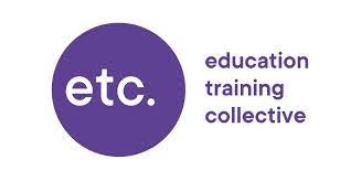Its intentions are reasonable, but it’s hard to see any positive outcomes from Oqual’s proposal, writes Tom Richmond
“I am afraid your grades were almost derailed by a mutant algorithm,” said Prime Minister Boris Johnson last August following the exams fiasco of the preceding weeks.
Five months later, the unenviable (and arguably impossible) task of finding another way to award GCSE and A-level grades in 2021 without mentioning the ‘a-word’ has fallen to the exam regulator, Ofqual. Even so, it is teachers who will probably be the biggest losers this summer.
Ofqual’s new consultation, which opened this week, gets off to a bad start by proposing that “the grades awarded to students in 2021 should reflect the standard at which they are performing”. This may sound sensible, but it is meaningless.
An exam grade is a judgment of each student’s performance relative to their cohort. There is no such thing as an A- or C-grade piece of work without a national set of grade-specific benchmarks in every subject at every level. These do not exist. Furthermore, the scale of ‘learning loss’ means that many students will be performing poorly in absolute terms through no fault of their own, but the consultation does little to account for this.
To try and bring some consistency to proceedings, Ofqual goes on to propose that exam boards provide “papers which teachers could use to assess their students”, only to add that “teachers should also have some choice of the topics on which their students could answer questions”.
Ofqual’s intentions are reasonable, but the notion of fairness and consistency evaporates if teachers can pick and choose which parts of a syllabus their students will be tested on. The fact that these exam board papers (which may or may not be compulsory) will almost certainly be sat at different times by different students undermines the whole exercise in any case, as the papers could easily be circulated online.
Last summer was a communications disaster
Remarkably, Ofqual also opens the door for teachers to devise their own assessment materials so long as they are “comparable in demand to the papers provided by the exam boards”. The damage this proposal could do through poor practice (or even malpractice) is plain for all to see. The lack of clarity about what will happen if schools and colleges are still closed in the summer is another serious cause for concern.
Moreover, Ofqual’s consultation does not address the fact that last summer was a communications disaster as much as a policy disaster. Many students and parents struggled to understand the difference between UCAS predicted grades (which are almost invariably too optimistic) and centre-assessed grades. We could be heading for a repeat of the “You predicted me a B just a few months ago, but now you’ve given me a C?” saga on Twitter and elsewhere. This time though, it will be teachers in the firing line, not an algorithm.
Recalling last summer’s chaos, it is easily forgotten that the algorithm was designed to protect teachers, not undermine them. It was meant to provide a firewall between them and a student’s final grade. Without such a buffer in place, there will be nothing to shield teachers from upset and disappointed students and their parents.
In short, there is little chance of ensuring fairness and consistency if we proceed down the path envisaged in Ofqual’s consultation. If the class of 2021 are truly judged on current ‘performance’ and exam boards keep every school and college in line, results will surely plummet. The placards seen in last summer’s student protests demanded that the government “trust our teachers”, yet I wonder how many will agree with that sentiment if they don’t get the grades they want this time.
On the other hand, politicians might be keener on waving through more grade inflation than facing another angry mob on social media. Turning a blind eye to rampant grade inflation would certainly placate parents and students on results day, but will inevitably store up even more problems for 2022 and beyond – making a ‘return to normal’ an even more distant prospect.
There are no easy answers, but Ofqual’s proposals simply do not make the grade.







Am student want to join university if there is vacancy I wish to Fill
Ofqual’s proposals of ‘tests’ in May and June is absolutely no different from having exams which they categorically said would be cancelled this year
putting undue stress on already highly stressed students! Another U turn by the government!! Teachers are professionals and should be continuously assessing students and moderating within their school departments. This is surely the only fair way in an unfair playing field. Samples of work could be submitted to the exam boards for quality control.
Maybe it’s time to overhaul the old fashioned notion that an exam is a fair assessment of a person’s ability and that we live in a ‘one size fits all’ world.
My son for one definitely does not. A fair all round comprehensive assessment of a person’s ability in a number of situations covering lots of skills including academic and vocational ones may be a way forward. I’m constantly being asked “Why do I have to do this?” or “When am I EVER going to need to know this?” and quite frankly, I agree. Our systems are outdated and should be overhauled to give our young people a chance to show what they can do and not what they can’t.